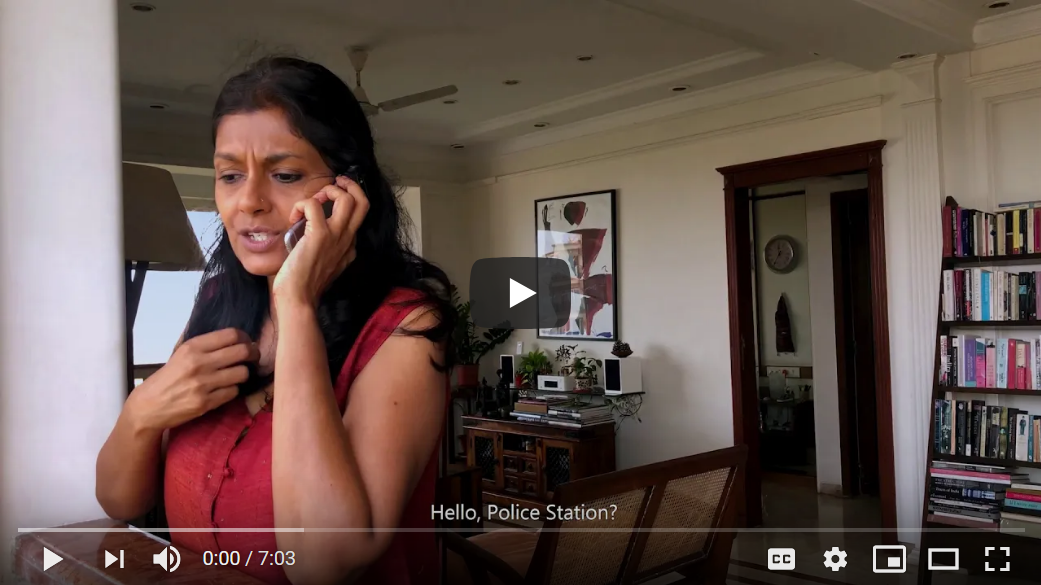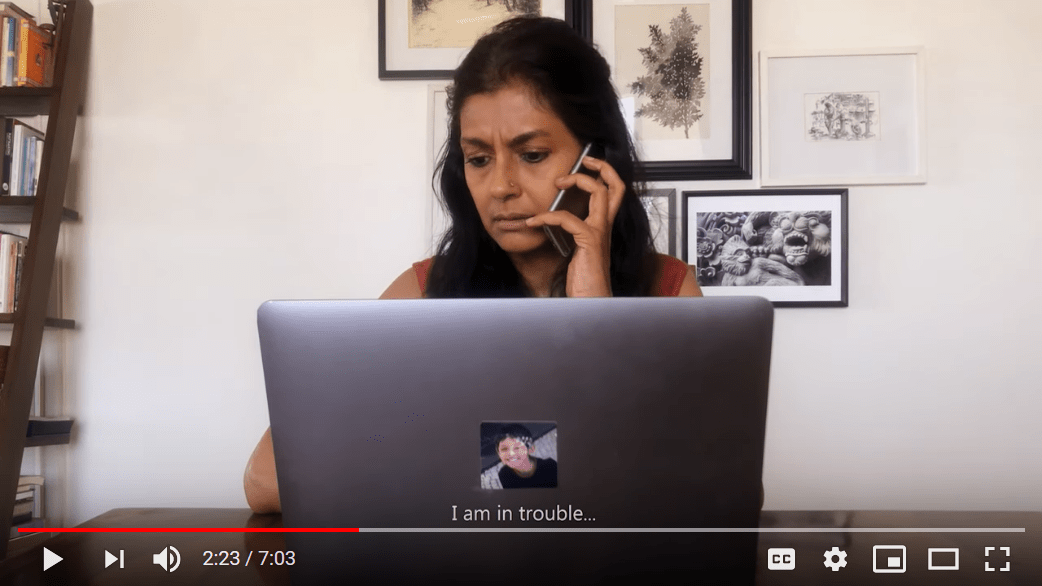New Delhi, 26 May 2020 - As the COVID-19 pandemic unfolds, people around the world have found themselves in isolation to help contain the outbreak. While women continue to hold up more than half of the sky, during this crisis, the increase in workload and the surge in domestic violence has made women more vulnerable even inside their homes. It is high time we break the stigma around reporting abuse.
Against this background, UNESCO, UNFPA, UNICEF, UN Women and the South Asia Foundation (Madanjeet Singh Foundation) have joined hands to support director and actor Nandita Das in the production and launch of a short film entitled Listen to Her. It will be available from 11am GMT (4.30pm IST), across all the social media platforms, including on Youtube through the link https://youtu.be/scwYray2Dsk.

Listen to Her focuses on two important issues that many women are grappling with – an unprecedented increase in their workload and at times, even being locked down with their abusers. It aims to inspire women to speak up and for us to add our voice to end the silence around these issues. The film will also create public awareness of helpline numbers so survivors can seek immediate assistance.
In India, the National Commission for Women has recorded more than a two-fold increase in the number of cases of gender-based violence during the lockdown period. As we find ways to help the migrant population, daily wagers, health workers on the frontline, we also need to find ways to support women who are battling within their homes. Society simply cannot thrive if half the population lives in fear of being abused, physically and mentally.
“The film was a spontaneous response to the irony of “STAY HOME, STAY SAFE” for millions of women in India and around the world. This pandemic has taught us that our lives are so deeply intertwined, and so it is imperative we respond to the issues around us. I wanted to tell a simple story of a woman overburdened and a woman abused, both, impacting each other. The film is adding its voice to encourage women to speak and for us to listen. Creatively speaking, it was a challenge to shoot during the lockdown. But it was worth the experiment!” explained Nandita Das, actor, director and social advocate.
“There will be a before and after COVID-19, and this should apply to gender equality too. There must be a redefinition of masculinities, where men share responsibilities with women in dignity, respect and non-violence. UNESCO, together with its sister UN Agencies UNFPA, UNICEF, and UN Women, felt it was important to support Nandita Das in making this film possible," said Eric Falt, Director and Representative, UNESCO New Delhi.
“COVID-19 has forced us to re-visit some very important conversations about gender, be it violence, equal participation at home, or simply pre-defined roles for men and women. Today it is the pandemic; tomorrow it may be something else. Gender equality is no longer a contested matter, it is both complex and simple. It is a societal transformation that will be a reality when each individual - man, woman, girl and boy - looks at the other with fresh eyes, as if looking into a mirror, and then, treats the other with dignity, respect, as equals, recognising that their own humanity is only complete with the full existence of the other," said Argentina Matavel, UNFPA India Representative.
“The film poignantly depicts the ironic realities of what it means for women to 'stay home, stay safe' amidst the pandemic. On the one hand, women and girls are compelled to heavy lift the increased caregiving responsibilities, juggling with many different pieces of life and work. On the other hand, many of them encounter a surge in domestic violence reported not only in India, but across the world. The complex interplay of gender within the larger socio-economic impact of the crisis must be factored into the response and recovery of the COVID-19 pandemic," noted Dr Yasmin Ali Haque, UNICEF India Representative.
"The pandemic has challenged all we knew about the dynamics of economics and power, both inside the home and outside. While many of us have had the privilege of home, a safe space, many women have long dreaded the four walls of home, a private chamber that reminds them of the horror and terror of physical, emotional and psychological abuse. Across the world, the dread now lies exposed, along with the inescapability of it. The pandemic has upended several assumptions about contemporary world order and equality. UN Women is proud to support this initiative which contributes to bring to light on the importance of ending violence against women and girls," said Nishtha Satyam, Deputy Representative, UN Women India.
*************
For further information on Listen to Her, please contact:
Nandita Das Initiatives (contact@nanditadas.com)
Juan Pablo Ramirez-Miranda (jp.ramirez-miranda@unesco.org), Head of Social and Human Sciences, UNESCO New Delhi
For further information on the issues of gender-based violence, as well as sexual and reproductive health including safe pregnancy and childbirth amid COVID-19, please contact:
Nilanjana Bose (bose@unfpa.org), UNFPA India


